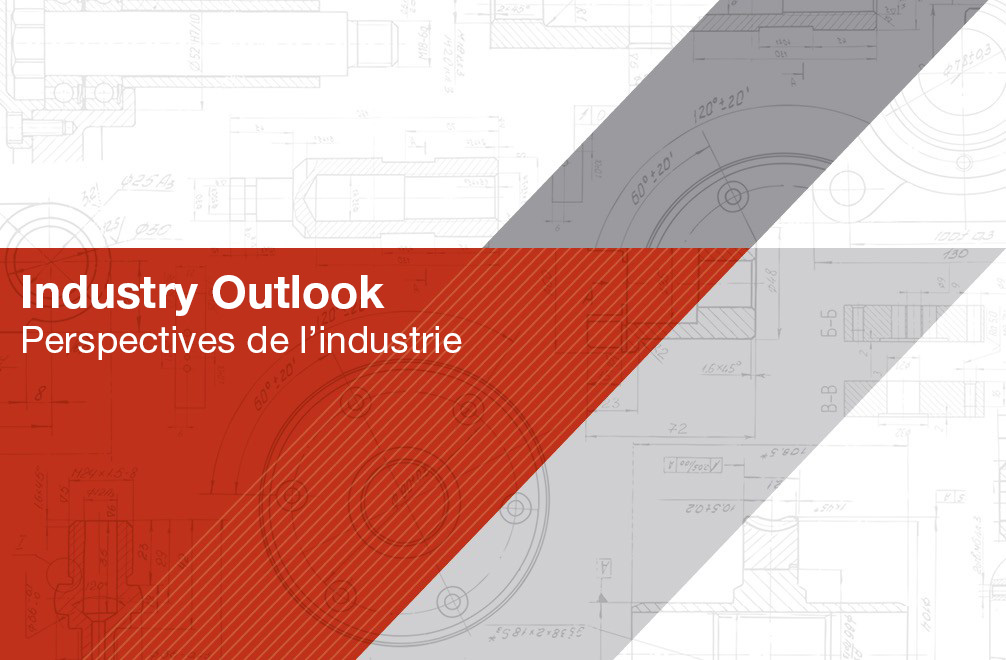Engineering Business Sentiment - the Current and Future State of our Industry
ACEC now conducts a bi-annual Engineering Business Sentiment Survey that captures the outlook of firm executives and industry leaders. This survey explores their perspectives on their firm’s financial health, optimism for the engineering and design services industry, and their views on the overall condition of the Canadian economy.
The survey, conducted in partnership with the ACEC Research Institute - the research division of the American Council of Engineering Companies - provides valuable context to the economic data published annually by ACEC, offering a clearer picture of our industry's current state and future direction. By analyzing these findings, ACEC produces reports that deliver actionable insights into current and emerging business conditions and key trends shaping consulting engineering firms across Canada.
The Engineering Business Sentiment report is a critical tool for understanding the industry's opportunities and challenges, helping firms navigate a rapidly evolving landscape.
Key findings from the latest survey:
Current Business Conditions
- Current sentiment is positive. The Net Ratings for firms’ finances (+83) and for industry (+62) are very high. The Net Rating for the Canadian economy is +22.
- Optimism about the Canadian economy rose by eight points compared to 2025 H1. Optimism about condition of the industry and firms’ overall finances, while high, dropped by nine and seven points, respectively.
- Current sentiment remains very optimistic within all market sectors. Sentiment is strongest in Energy and Utilities (+68) and Water/Wastewater (+68).
- Sixty-two percent indicate their firm has a current backlog of less than one year. The median remained steady at eight months.
- Since 2025 H1 and last year at this time, overall backlog has remained steady.
- Eighty-three percent of firms have at least one opening, down nine percentage points from 2025 H1. The median number of open positions dropped from six to five.
- Many segments saw declines in the number of open positions compared to 2025 H1. Quebec firms have a median of 25 open positions, down 50 from 2025 H1 and down 25 from last year at this time.
- On average, five percent of positions remain unfilled, consistent with 2025 H1.
- Segments saw either a slight or no decline in open positions as a percentage of all FTEs relative to this time last year. Compared to 2025 H1, results are varied.
Future Business Conditions
- Future sentiment, 12 months from now, is positive for the firms’ finances (+23), but respondents are less enthusiastic about the future of the industry (+7) and are pessimistic about the future of the Canadian economy (-7).
- Future sentiment improved dramatically for the Canadian economy (up 39 points) since 2025 H1, although it remains negative (-7) and below the level of one year ago (-2).
- While half of the segments saw improvement since 2025 H1, most are more pessimistic about the future of the firms’ finances than they were last year at this time.
- Political Environment/Uncertainty (80%) and General Economic Uncertainty (75%) are fueling negative future sentiment. Forty-eight percent cite tariffs as a concern.
- Most sectors saw improvement in future sentiment compared to the first half of 2025, but most remain below year ago levels.
- Thirty-eight percent of firm executives believe their firm will see a higher backlog of projects 12 months from now, an increase of three points from 2025 H1. The Net Rating improved nine points to +19.
- While backlog sentiment for one year from now remains positive across most segments, the Net Rating has decreased dramatically since 2024 H2.
- Fifty-seven percent predict there will be an increase in hiring over the next 12 months, down six points from 2025 H1. The resulting Net Rating declined eight points to +47.
- Although future hiring sentiment remains high across all segments, most segments saw declines relative to 2025 H1 and last year at this time.
- Fifty percent of firm executives agree they are extremely concerned about the impact of inflation on their firm, up six points from 2025 H1; the Net Rating increased from +18 to +27.
- Fifty percent agree that they are extremely concerned about the impact of tariffs on their firm in the coming year.
- The perceived likelihood of recession in the next six months is 52 percent according to the average estimate among firm leaders, a decrease from 2025 H1 (58%), but well above one year ago.
Hot Topics
- Half of firm executives are at least somewhat familiar with Bill C-5 and both of its components. However, only 15 percent are “familiar” or “very familiar.”
- Among those at least “somewhat familiar” with Bill C-5:
- Seventy-three percent agree that it will strengthen Canada’s long-term economic resilience and competitiveness.
- Seventy percent agree that the “national interest project” designation will help accelerate critical infrastructures.
- Fifty-seven percent are at least “somewhat confident” that the federal government can deliver timely and coordinated results.
- Fifty-four percent have confidence in the Federal Major Projects Office.
- Fifty-two percent have confidence in the federal government’s approach to Indigenous issues.
- Eighty-eight percent are concerned about legal and political challenges delaying potential projects.
- Seventy-five percent are confident that Bill C-5 can deliver on its stated goals.
- Project approvals is the internal trade barrier that most needs to be addressed (58%).
- Fifty-five percent are at least “somewhat confident” that the current federal infrastructure programs can strengthen Canada’s long-term economic success.
- Less than half (48%) are confident that the federal government is giving sufficient attention to local infrastructure needs.
Explore the insights that matter most to your business.
